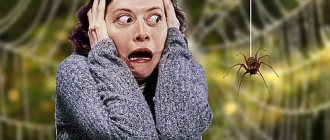What is she like?
Aerophobia affects approximately 20% of the world's population.
Only this is the number of people who are not just afraid and very worried during the flight. And they directly avoid it in every possible way. They are ready to give up traveling to other countries that cannot be reached by land or water transport. Or endure a long journey, for example, by car, just so as not to come close to the plane.
According to statistics, women are more susceptible to this type of phobia. Do you know why? Because men, in most cases, have already been programmed with such a quality as a willingness to take risks from birth.
Representatives of the strong half of humanity need this in order to achieve success, obtain food for the family and protect it. That’s why they often occupy leadership positions.
And a person accustomed to control and power is simply not capable of taking and trusting other people like that.
In principle, almost every person, going up the ladder, says to himself: “I’m afraid.” And that's okay.
Still, the ability to fly is not an innate human ability. And the feeling of anxiety is a natural reaction of the body to not entirely normal conditions.
We are talking about a disorder if, experiencing fear, instead of overcoming it, a person cancels the flight, gets sick, and so on. Let’s look at the main signs by which you can easily determine whether it’s time to start “sounding the alarm” or whether everything is fine with you.
Reasons for fear of flying
All people suffering from this type of phobia can be divided into two groups. The first group is afraid of flying machines. The second is afraid of her own reaction to flying on an airplane. They fear that they will not be able to cope with their experiences. Some people are afraid of having a heart attack.
One of the causes of aerophobia (the so-called fear of airplanes) may be a consequence of a person’s desire to control the entire flight process. Because he cannot do this, fear arises.
Aerophobia often affects purposeful people who are used to keeping everything under control. Lack of control may be perceived by such people as a security threat. An airline passenger does not understand how the plane works and what protective mechanisms the aircraft has. Due to the lack of this knowledge, his brain perceives the plane as an unsafe place.
Another cause of aviophobia may be a negative experience of flying in a person’s immediate environment. This fear was formed by loved ones. The reason could be a plane crash in which someone close to you died, or another negative experience told by someone. All this creates a negative attitude towards flying in the mind. The cause of the development of aviophobia may be:
- fear of limited space in the aircraft cabin;
- acute fear of heights;
- lack of control over the flight process;
- fear of lack of control over the body's reaction, nausea or vomiting may occur;
- fear of a panic attack in conditions of inevitability;
- the theoretical possibility of the plane being hijacked by terrorists;
- fear of injury during the flight;
- fear of turbulence.
How to overcome your fear of flying
Before you get rid of the fear of flying on an airplane, you need to start working on yourself and your perception. You can seek help from a psychologist. If minimal methods to overcome the fear of flying do not help, you need to resort to more serious measures (taking sleeping pills before the flight and more in-depth treatment under the supervision of a psychologist).
How to help yourself
Treatment of aerophobia at the initial stage can be carried out independently.
- You should study the statistics of disasters at sea, on land and in the air. You will realize that plane crashes have the smallest percentage of all accidents. Any person is more likely to capsize on a train than to fall on a plane.
- Self-education in the field of aerodynamics will help you get rid of your fear of airplanes. People begin to panic because they cannot control the flight process and do not know how the plane is designed (all systems of the airliner are backed up by 4 duplicates).
The main mistake of many aerophobes is trying to cope with their fear of flying with the help of alcohol. When the body is under stress, alcohol has a stimulating effect rather than a calming effect. Healthy sleep will help you cope with panic. This is the most effective way to combat stress. Talk to your doctor about taking sleeping pills.
Sleeping in flight will help you cope with fear
Help from specialists
A psychologist's advice will help you cope with a long flight.
- Find a distracting activity for yourself if you can’t sleep (crossword puzzles, a book).
- Look at those around you, try to feel their calmness.
- The fear of flying on an airplane can be overcome by talking with a neighbor; if you see that the person is making contact, you can tell him about your fear.
Learn to meditate. Abstraction from external stimuli is a sure way to defeat the disease. You need to learn how to do this in advance, at home, this will help you overcome fear in the future, and over time, cure the disease completely. Nobody manages to relax the first time.
Calm and tranquility comes. Such a simple exercise on an airplane will help, if not fall asleep, then at least relax your nervous system, and over time you will notice how the fear of flying on an airplane gradually begins to recede.
New treatment methods
Getting rid of aerophobia using new methods is very simple. The treatment takes place in several stages and looks like this:
- teaching an erophobe the intricacies of airplane construction,
- psychologist's advice,
- Only strict self-control (the ability to control your thoughts and feelings) will help you overcome the disease.
- At the last stage of treatment, the patient is placed in a stressful situation, simulating turbulence and other emergency situations on simulators.
Those for whom the fear of flying on an airplane may result in loss of consciousness, an epileptic seizure or a heart attack are advised to undergo a course of drug therapy in advance. These are elementary herbal sedatives: Valerian, Persen, Phytosed, etc. In severe cases, tranquilizers and strong sleeping pills are prescribed.
A phobia of flying in an airplane can only be cured if everything is done in a comprehensive manner.
Studying the structure of an airplane will help you get rid of fear
Oxygen masks always work
There is an old myth that emergency oxygen masks on airplanes don't actually do anything because they aren't connected to oxygen tanks. It is not true. At least in 99.9% of cases. And just because the bags on them aren't full doesn't mean they're not functional. Oxygen is supplied through an oxygen system from cylinders, so there is no need to worry about depressurization or smoke - there is enough oxygen for everyone:
Do not ignore flight attendant briefings on this matter. Although using an oxygen mask is not difficult, in a critical situation you can get confused and put it on incorrectly. With oxygen starvation, clouding of consciousness will occur within just 15 seconds, followed by possible loss of consciousness.
Help from specialists
For some people, aerophobia is so deeply rooted that relief comes only after a psychotherapeutic session. In the most severe cases, the course of treatment for this phobia is 3–10 sessions.
Treatment regimen for phobia
Modern psychotherapists argue that treatment of aerophobia will be successful only if it is built according to a clear pattern. Fear of heights usually consists of the following disorders:
- Aerophobia.
- Claustrophobia.
- The need to exercise control over the situation.
- Panic attacks.
- Obsessive-compulsive disorder (OCD).
Treatment of aerophobia, when the disease is at an initial stage, involves the timely elimination of concomitant pathologies. Unfortunately, some mental disorders, such as OCD, can only be suppressed temporarily.
The second stage of treatment for this phobia is “educational education”. A person suffering from aerophobia will learn interesting details about aviation, safety systems and aerodynamics. The main task of the specialist is to teach the patient to control his emotions - the physiology of fear, and not to control what he a priori cannot control.
At the third stage of treatment, a person suffering from aerophobia is asked to take a virtual flight in a special room.
If the treatment was timely and correct, then recovery occurs in 85 - 90 percent of cases. Some doctors are confident that if aerophobia is not accompanied by severe mental disorders, then overcoming fear occurs in 100 percent of cases.
New treatment methods
For some people wondering how to get rid of aerophobia, only hardware treatment can help. The treatment process is carried out in a full-time course format. Classes can be either individual or group. The range of therapeutic measures that allow you to say goodbye to aerophobia forever is quite extensive. People suffering from aerophobia are offered:
- theoretical studies;
- practical lessons;
- training on special simulators;
- implementation of virtual flights.
In addition to the general course, people suffering from aerophobia are given a separate opportunity to “take a flight” on two flight simulators.
The first simulator is presented in the form of a modern 3D stimulator. With the help of this device, a person suffering from aerophobia will be able to better understand the principles of behavior of air transport during the flight. In essence, a person learns to independently operate an aircraft and control the flight. After this, the symptoms of the phobia usually disappear.
One of the rooms for working on a virtual reality simulator
The second flight simulator is a special complex. This complex effectively uses modern virtual reality technologies. Once in the office of a unique simulator, a person will be able to try on the responsibility of a pilot. In this case, the operator creates a variety of conditions.
After such activities, a person can usually better assess the current situation. Hardware treatment also has a significant disadvantage - high cost. It is also believed that such training is more suitable not for “mere mortals”, but for civilian and military pilots suffering from aerophobia.
For those who cannot attend face-to-face classes, an alternative is provided in the form of an interactive video course. With the help of this video course, a person will learn everything about the work of a pilot and the functioning of air transport.
Treatment of aerophobia requires an individual approach. The success of treating aerophobia depends on how correctly the root cause of fear of air transport is identified.
What is aerophobia
“I have aerophobia, how can I get rid of this disease, and what medications do I need to take with me,” think those who are afraid of flying. You shouldn’t rush to make a diagnosis and put a stamp on yourself, because aviophobia is accompanied by corresponding behavior. Fear can manifest itself in different ways: for some it is enough to take sedative pills, for others the psychological attack reaches the point where they cannot bring themselves to board the plane.
What is aerophobia? This is the name of the panicky fear of flying on an airplane. Every passenger experiences slight discomfort before or during a flight, but this is not a phobia.
Aerophobia is the following signs in behavior:
- holding the seat tightly, palms becoming damp, rapid heartbeat and breathing;
- during the flight, they look for the flight attendant;
- listen to every sound from the aircraft;
- panic before and during the flight, reaching its peak during turbulence;
- fear of looking out the window;
- fear of confined space inside an airplane;
- taking alcohol or sedatives before the flight.
Attention! The fear of flying can be combined with other fears: confined spaces, heights, and others. In any case, you should get rid of your fears by contacting a specialist who will prescribe attending a training or taking a course to eliminate the disease.
Aerophobia - what it is and whether it exists can definitely be explained by psychology, since not every fear of flying is a phobia. Feeling fear of possible danger is absolutely normal for every person.
I'm afraid to fly on an airplane, what should I do?
If you fly with someone who is more afraid than you, support them. Your fear will go away on its own.
If you're flying alone, do something productive. Set yourself a goal - for example, learn to draw an elephant in a china shop. Try to draw from different angles, increasing the degree of destruction and estimate the shopkeeper's losses.
But you don’t need to get drunk before the flight and during the flight. By doing this, you will put yourself and those around you in an uncomfortable position. How many cases have there already been when citizens who did not know how to drink or did not know what to do, interrupted the flight and stole precious time from other passengers.
At altitude, in low pressure conditions - who knows how your body will react to the usual earthly dose of vodka or cognac. If you are not confident in yourself, buy a book of Russian or Western classics instead of a bottle.
How to get rid of fear: on your own or with the help of a psychotherapist
It is only important to determine the degree of aerophobia. Sometimes a person is worried, but he flies
Sometimes it freaks out and doesn’t fly. And it happens that a person infects everyone around him with his fear! He tells frightening stories from life (interestingly, the stories are so embellished that witnesses will never know them), they don’t allow their loved ones and children to fly, developing this fear in them!
What is important: such a person clings to his phobia; he will find a thousand reasons why he should not be treated. After all, he’s healthy, it’s just that planes are demons
This degree of aerophobia should only be treated by a psychotherapist! The rest will be helped by a psychologist and the “Fly Without Fear” course, where the emphasis is on the mind, the structure of aircraft and physics in conjunction with psychology.
When a person cherishes his phobia, he says: “Why treat? It does not bother me". Phobia is a disease. If left unattended, it will grow, capturing a person’s subconscious.
How to overcome your fear of flying on an airplane
Many people have to make regular flights as part of their job. If a person experiences the symptoms of aerophobia we described earlier on every flight, and they do not weaken, but appear steadily or even intensify, then you should seriously think about it. In this case, you should definitely seek help from a psychotherapist. Analyzing each individual situation, the specialist will prescribe the necessary treatment.
- Psychotherapy. As we said, aerophobia can be both a symptom and an independent problem. During psychotherapeutic sessions, the doctor will determine your personal cause and work with it.
- Drug treatment. In more severe cases of phobia, special medications are used in combination with psychotherapy. Sedatives ranging from herbal sedatives to powerful tranquilizers are used.
As for psychotherapy, like many others, this phobia is effectively treated with cognitive behavioral therapy. A specialist helps you recognize and change erroneous thinking patterns that cause fear. Exposure immersion (one of the methods of cognitive behavioral therapy) is often used when working with aerophobia. The work consists of placing a person under stress, which he tries to avoid, while at the same time the therapist teaches relaxation techniques.
Gradually, the client gains control over his thoughts and behavior, cognitive reconstruction occurs (new patterns are created that do not involve panic when feeling flying). To recreate a stressful situation, both the client’s imagination and a real airplane flight in the presence of a psychotherapist are used. Modern technologies make it possible to use equipment to create virtual reality, which makes it possible to immerse yourself in the atmosphere of flight.
In addition to cognitive and behavioral methods, aerophobia can be successfully treated using hypnosis and neurolinguistic programming.
In her video, clinical psychologist and psychotherapist Veronika Stepanova talks about the most unexpected reasons behind the fear of flying. This may be fear of evaluation, shame, loss of control. That is why it is often not a bad idea to undergo deep therapy, using psychoanalysis, analytical or individual psychology. Only if the internal interpersonal conflict is resolved, there are guarantees that aerophobia will not mutate into any other. If you take only a cognitive-behavioral course without understanding the true cause of increased anxiety, there is a possibility that yes, you will not be afraid of flying, however, the problem will emerge as some other disorder, even psychosomatics.
“How scary it is to fly now”: How to cope with aerophobia
41 dead. Only 37 passengers survived. Again, a year after the tragedy in the Kemerovo “Winter Cherry”, a merciless fire buried dozens of lives. Some were flying for work, some to go fishing, some to visit relatives - each of us could have been in their place. Awareness of this fact is frightening and gives rise to a panicky fear of flying.
Some people are now scared to fly on a Superjet, some on Aeroflot, others are simply afraid to take to the air on any aircraft of any airline. Airplane tragedies are also frightening because of the large number of their victims - often everyone dies. And although almost half of the passengers managed to escape yesterday, even 41 people were huge losses.
And yet…
Is an airplane the safest form of transport?
This is usually the first phrase that is given to aerophobes as a counterargument. Yes, as a result of a plane crash, several dozen people can die at one time. But the plane is still the safest transport. Is this true and why does this happen?
The safety of various modes of transport is usually calculated based on the number of deaths per distance traveled. Or they calculate what percentage of the total passenger traffic is fatal. As a result, indeed, the plane turns out to be one of the safest modes of transport.
Here, for example, are statistics for the USA. The Washington Post, citing research by economist Ian Savage, provided the following data in 2021. Based on the number of passenger deaths per 1 billion miles traveled, the most dangerous vehicle is the motorcycle (212.57 deaths). Then come the car (7.28), ferry (3.17), train (0.43), metro (0.24), bus (0.11) and only then the plane (0.07). That is, the plane turns out to be the safest. On the other hand, its speed is much higher, and the distance that an airliner will fly in an hour, vehicles can travel the whole day. And the chances of getting into an accident in a whole day's journey are, accordingly, much greater than in an hour.
You can try to compare different types of transport in terms of safety in another way: count the number of accidents, deaths and injuries in them over one time period, for example a year. And take not the distant United States of America, but our native Russia. And here the picture is not so happy for aviation.
Thus, according to Rosstat, in 2021 there were accidents: on inland water transport - 5, on railways - 14, on air transport - 39, on sea transport - 49, on roads - 169,400. Death toll: inland water transport - 2 , railway – 3, sea transport – 6, aviation – 50, motor transport – 19,100. Number of wounded: inland water transport – none, sea transport – 2, railway – 24, aviation – 29, motor transport – 215,400.
Photo: diy13/shutterstock.com
Here airplanes are in second place in terms of danger, but even here there is a huge difference with motor transport: the human casualties from the latter are hundreds of times higher.
But for some reason we are afraid of aviation; aerophobia is much more common than autophobia. And when we pass a massive traffic accident, we do not get off the bus and go to work on foot. But after plane crashes, many are afraid to fly and switch to trains.
How to overcome aerophobia - advice from a psychologist
What is the reason for such persistence of aerophobia and is it possible to cope with the panicky fear of flying, fueled by news of another disaster?
As clinical psychologist Mikhail Khors notes, it’s not about airplanes.
– Horse said in an interview with Tsargrad.
The psychologist advises us to accept the position that not everything is under our control - in other words, to come to terms with it. Christianity also teaches humility, and it is greatly lacking in modern man. It is not aerophobia that should be a reaction to the tragedy at Sheremetyevo, but rather resignation to any possible fate.
Of course, it is necessary to investigate the causes of the disaster and take steps to prevent further accidents. But this is a matter for the relevant services. And an ordinary person should not create panic on social networks, not insult all the characters from firefighters to passengers with too much hand luggage who prevented others from being saved, but remember about their imminent death - not on the plane, but somewhere else. As they say, we will all be there.
And to those who died yesterday as a result of the fire of the “Superjet” - the Kingdom of Heaven.
Treatment of aerophobia
The DAR Psychotherapeutic Center provides treatment for various disorders associated with fear of flying. In our practice, we use only proven treatment methods that have convincingly proven their effectiveness. Each technique is selected in full accordance with the specific cause and symptoms of the disease.
Features of phobia treatment at the DAR Center:
- individual approach. Every patient who decides to undergo treatment in our clinic can count on attentive attention and a high level of service. When selecting the optimal course of treatment to restore psycho-emotional functions, we always take into account the personal wishes of our patients;
- high professionalism of doctors. Aerophobia is eliminated by qualified specialists who have extensive experience in the field of psychotherapy and clinical psychology. They know very well what to do with pathological fear, so our patients quickly return to a comfortable life;
- flexible pricing policy. We make great efforts to ensure that the cost of treatment is at an adequate level, quite affordable for many people who want to quickly return to a normal psychological state. This sets us apart from other medical centers offering relief from panic reactions.
In order to make an appointment with a doctor or get additional information about the timing and cost of treatment, you need to contact our specialists by calling (495) 725-04-07.
Symptoms of aerophobia
Numerous studies have shown that people with extraordinary imagination and imagination most often suffer from aerophobia. They can draw in their minds pictures of the most unimaginable situations that are only remotely related to the real danger that awaits a person in flight. For example, monstrous images of an airplane colliding with a military missile accidentally fired by an air defense system arise in their minds. Or they are seriously afraid that during the flight they will become a hostage to terrorists who decide to hijack the plane. Moreover, these images are accompanied by symptoms of anxious neurosis, directly related to the work of the autonomic nervous system, which regulates the functional activity of internal organs, endocrine and exocrine glands, blood and lymphatic vessels.
The main symptoms indicating a phobia:
frequent changes in blood pressure. Many patients suffering from aerophobia say that before flying they feel either hot or cold for no reason. The reason for sharp fluctuations in blood pressure is a stressful situation, which negatively affects well-being and general health;
- increase in heart rate. Fear of flying leads to a rapid flow of adrenaline, which is necessary to activate the body's hidden reserves. As a result of this, the heart rate increases sharply, and after an attack of aerophobia, a person feels absolutely depressed and overwhelmed;
- trembling of the limbs or the whole body. People suffering from aerophobia often experience involuntary movements of the arms or legs caused by alternating contraction and relaxation of the muscles. You should not fight tremors with the help of medications, since the cause of its appearance is overexcitation of the nervous system;
- severe pallor or redness of the skin. An acute attack of aerophobia leads to the release of too much adrenaline into the blood. The consequence of this is a sharp spasm of the subcutaneous capillaries. As a result, a change in the natural color of the skin occurs. The disruption of the blood supply to the skin is most noticeable on the face;
- severe dizziness and headaches. During an attack of aerophobia, many patients suddenly begin to feel dizzy. This occurs due to an increase in the concentration of oxygen in the blood of the cerebral vessels. After the fear gradually subsides, the person experiences headaches, which may be accompanied by a loss of clarity of consciousness.
Advice from psychologists
What does psychology tell us about why people are afraid of flying on airplanes and how to get rid of aerophobia?
Larisa Ionova, a practicing psychologist with 17 years of experience: Most often, a person is afraid of flying because they talk too much about outdated equipment, about the “sloppy” medical examination of the professional staff. If most people understand how a car works and how to drive it, then airplanes represent the unknown, and this is scary. How to stop being afraid of flying on an airplane? Your own attitude is important here if the problem is caused precisely by psychology. There is no need to carefully read about the causes of the plane crash that occurred 17 years ago the night before the flight. It's better to think about something else altogether.
Kostyukov Peter, a practicing psychologist with 11 years of experience: I am often approached, mostly by women, with the question: what to do if you are afraid to fly on an airplane? I always advise you to understand why you are afraid of flying. Interestingly, at my reception there was a young girl who needed to fly abroad. As it turned out, when traveling to remote cities, her parents always told her to take a train ticket, because the plane was more expensive and more dangerous. How long have you compared prices for air and train tickets? There is practically no difference in price for traveling around Russia. It's the same with security.
The best way not to be afraid of flying is to sleep!
In general, I always try to fall asleep on a plane. When you sleep, then it’s not scary. But when you're scared, you can't sleep. Sleeping pills and a blindfold help me get out of the vicious circle. Seriously, I took a melatonin tablet (strictly speaking, it’s not even a sleeping pill, it’s a sleep hormone, in America and Europe it’s sold in supermarkets next to vitamins) - and you sleep the whole way. It’s not scary, and you arrive rested. By the way, this is especially true when there is a large time difference between countries.
Since I sleep on flights, the worst time for me is before the flight. It’s a pity that I can’t fall asleep in advance (three days in advance...) and ask someone to load me onto the plane... So I try not to let thoughts of fear take over me. Man is the master of his thoughts and feelings. Don't read, don't talk, don't listen, don't think about disasters. It’s best not to think about getting on a plane at all. I’m going as if I’m not going on a plane at all, but on a train or bus. Over time, the skill grows and I manage to quite realistically pretend to myself that I’m not scared.
What to do before the flight
Adolescence crisis in psychology - what is it, reasons
How to stop being afraid of flying on an airplane? Start calming yourself early. Many people are afraid to fly because it is the first experience in their life. Some people systematically experience fear before every flight. You can try several effective psychological techniques:
- Talk about fear. The support of loved ones will help you cope with your feelings.
- Preparing for the trip. Depending on the purpose of the flight, it is worth thinking about where you can go and how to have fun. If this is a business trip, then think about your actions. Such thoughts will distract you from your fear of flying. Think not about the flight itself, but about the goal.
- If you can’t control yourself during a long direct flight, you should choose a route with a transfer in advance. There will be an opportunity to rest at the transfer point.
- Don't scare yourself. Often the cause of fear is news about disasters. Unconsciously, people transfer this fear onto themselves, and panic appears. Therefore, the day before you should not even think about such cases. If a disaster occurred recently, and thoughts about it haunt you, it is better to read information about the design of the aircraft and find out what makes the flight safe.
- Keep yourself occupied at the airport. In order not to think about the upcoming flight while waiting for a flight, you should calm down: go shopping at the airport, listen to music, read a book, watch other flights on the online board.
- Do not overdo it with alcohol or sedatives. It is better to comply with the norm, otherwise problems with well-being will be added to fear.
You can prepare your nervous system long before the flight
How to stop being afraid of flying
To get rid of aerophobia forever, you need to find the root cause of fear and eliminate it. For this it is better to consult a psychologist. The following tips will help temporarily alleviate the condition.
What not to do
It is not recommended to drink alcohol. The calming effect from it is short-term, and after that there is even greater anxiety. Alcohol leads to dehydration and fatigue. For approximately the same reasons, you should not drink coffee; it increases blood pressure and further excites the psyche.
How to prepare for a flight
Avoid physical and emotional stress before flying. Get in a positive mood: remember the statistics, imagine an exciting vacation or successful completion of the tasks that await you, remember the safe flights of your friends.
What else you need to do before the flight to stop being afraid:
- double-check your luggage and documents, you don’t need unnecessary worry;
- take with you a sedative and pills that may be useful (this will give you a feeling of support and security);
- think about what will distract you, take it with you, download a book or buy the necessary thing.
You can get rid of the fear of flying by training on special flight simulators. Psychologists also practice this method. The main thing is that someone and you yourself remind that the training takes place on Earth. Exercises on the simulator are completely safe, but this will allow you to get used to the sensations of flying.
How to overcome childhood fears and prepare your child for flight:
- colorfully talk about the delights of the trip, the upcoming vacation;
- tell in detail about each stage of the flight (from check-in to landing) so that the child does not suffer from fear of the unknown;
- talk about the rules of conduct on an airplane;
- tell them that there is a toilet and first aid equipment on the plane, and that parents and staff are always ready to help if something happens;
- play the role-playing game “flight” (suitable for preschoolers);
- make an association with beautiful and free birds that also fly;
Older children can be introduced to the statistics and specifics of aircraft operation. You can give your child a toy or other thing that he has long dreamed of. This will connect the flight with pleasant emotions and distract the child.
Behavior during flight
If you are having a panic attack, use breathing exercises. Do it with your eyes closed, concentrate on inhaling and exhaling, say it or count to yourself.
Try to convince yourself that the fear is irrational and that the deterioration in well-being is a consequence of the phobia. Your physical condition will return to normal as soon as you calm down mentally.
It is important! If you understand that you cannot cope with fear on your own, then contact the flight attendant. Tell us about your experiences, let me help you
Airplane personnel are trained to provide medical assistance and calm people during panic and phobia attacks.
What to do during turbulence
What to do:
- breathe deeply;
- repeat that pilots have all the necessary skills;
- try to distract yourself;
- listen carefully to the flight attendants;
- remind that turbulence is just an alternative to potholes on the roads.
It is important! The turbulence zone can be compared to bumps on the road. This situation is not dangerous
The load on an airplane in a turbulence zone is even lower than the load on a car while driving on a bad road.
Where does fear come from?
Infantility in women - what is it, signs, how to get rid of it
How to get rid of aerophobia? First of all, find out about its cause. Any of them lies in the subconscious of a person.
One of the reasons people suffer from aviophobia is the fear of moving. It is inherent in a person at the level of reflexes and manifests itself even in childhood, when children are afraid to ride a scooter, bicycle, or car. In adulthood, many people retain this reflex in relation to airplanes.
At the moment of takeoff, the human body understands that it is in an unusual environment, and it found itself there abruptly. People who are susceptible to psychological phobias begin to panic at this moment, not always realizing the cause of their fear.
Many people are afraid to fly because their brain stores many images of tragedies, including from movies. Such people prepare themselves in advance for a state of fear, going through scary images in their imagination.
They are also afraid to fly for the first time, this can be explained like any fear of the unknown. There are cases when the first flight was accompanied by poor health, and subsequently the consciousness perceives such a process of movement as the one that caused the bad condition, therefore a defense appears in the form of a phobia.
Does the plane sometimes shake? It's OK!
Feeling shaking, some people begin to panic - what if something is wrong? But this is just turbulence - a common natural phenomenon caused by natural air circulation. When building airplanes, engineers take these processes into account and design the airliners so that they can withstand extreme loads. It is known that aircraft are the safest transport in the world, and pilots and flight attendants are highly qualified specialists who have undergone professional training. So when the plane starts to vibrate, follow the crew's instructions and buckle up. It’s better not to loosen your seat belts during the entire flight, then nothing will interrupt your rest.
1
1











